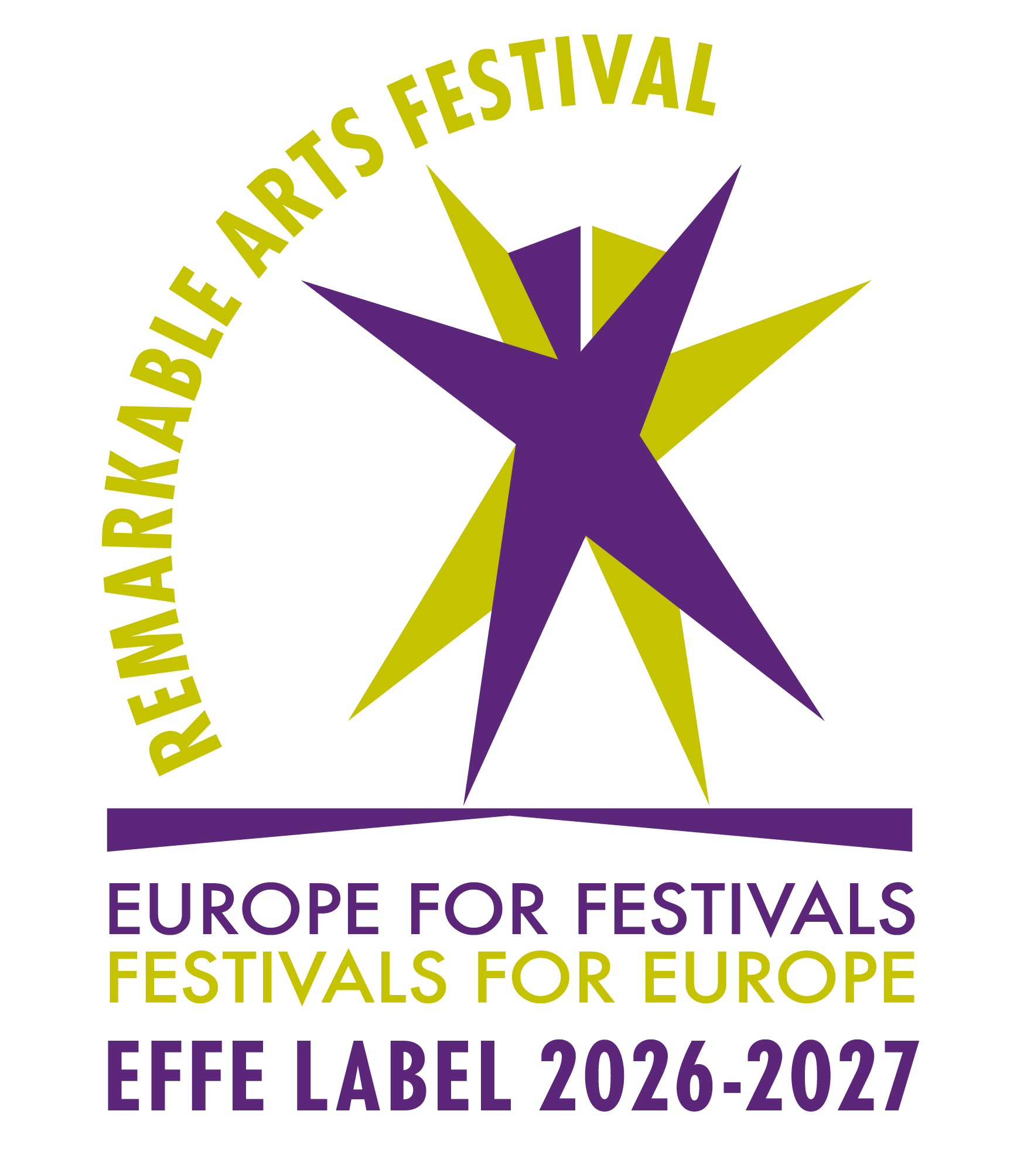- home
- festival
- festival 2025 – XXXII
- festival 2024 – XXXI
- festival 2023 – XXX
- festival 2022 – XXIX
- festival 2021 – XXVIII
- festival 2020 – XXVII
- festival 2019 – XXVI
- festival 2018 – XXV
- festival 2017 – XXIV
- festival 2016 – XXIII
- festival 2015 – XXII
- festival 2014 – XXI
- festival 2013 – XX
- festivals archive 1994 – 2012
- tickets
- foundation
- projects
- productions
- events
- news
- contacts
Compagnie 111 – Aurélien Bory
INVISIBILI
September 13, 2024 21:00
Teatro Goldoni in Florence | IT
also scheduled on
September 14, 2024 21:00 · at the end of this show, meeting with the author
as part of Fabbrica Europa 2024
In collaboration with Fondazione Teatro del Maggio Musicale Fiorentino
Thanks to Il Teatro delle Donne
invisibili by Aurélien Bory, produced by Teatro Biondo Palermo and Compagnie 111, winner in France of the prestigious Prix de la Critique 2023-2024 as best performance of the season, comes to Florence as the opening show of the Festival, with its extraordinary representation of an ancient and contemporary Mediterranean.
The Triumph of Death, a 15th-century mural fresco, painted for the city’s first hospice for the poor, which was moved and is now housed in the Palazzo Abatellis, caught Bory’s eye when he was visiting Palermo.
Over the ages, this work has become the very symbol of the city, both in terms of its content and the mystery surrounding its creation. It is astonishingly modern, not only for its highly thought-out narrative and structure, but also for the striking fact that the painter, still unknown today, and his assistant depicted themselves on the side of the fresco, looking at the spectator, a first in the history of painting. They are the only figures looking at the viewers, creating a striking mise en abyme. So it’s not just about death, the impressive, laughing skeleton, striking its arrows amidst a multitude of bodies; it’s above all about its representation. Isn’t the painter trying to remind us that art would not exist without the awareness of death? And that we use representations to speak of what will forever be unknown to us?
In The Triumph of Death, the painter and his gaze confront us with questions about art and its function. Because beyond this lively dance of colours, this spiralling chaos with its multiple references, this perceptible humour, the fresco offers consolation. Everyone dies, from the most pious to the most powerful, nothing resists death, because if there were no death, there would be no life.
For invisibili, I designed a backdrop reproducing The Triumph of Death at scale one: six metres by six, the dimensions of a theatre. The fresco was painted during the Black Death, the scourge of history that plagued Palermo for four centuries. And for invisibili I set the fresco in today’s context, hiding recent recurring scourges, including the deaths of migrants, cancer and natural disasters.
On the canvas, alongside the two painters, artists are represented: musicians and dancing women. These are precisely the artists I first met in Palermo. The first was Gianni Gebbia, a saxophonist with an international career who has worked on stage with many great artists, including Heiner Goebbels. Then Chris Obehi, a Nigerian singer who started his new life in Palermo singing in Sicilian. And finally, the dancers: Valeria Zampardi, Blanca Lo Verde, Maria Stella Pitaresi, Arabella Scalisi. With them, the fresco in the centre of the theatre comes to life and their dancing takes it to another dimension. For these artists, it is a vertiginous stage score, a set of invisible scenes that can be played out, if one looks at them once more, before the fresco crumbles and disappears forever. – Aurélien Bory –
After studies in physics, Aurélien Bory worked in the field of architectural acoustics before dedicating himself to theatre arts. He has been the director of compagnie 111, located in Toulouse, since 2000, which employs a large number of collaborators. He develops a physical and scenographic theatre – using space and the body – and creates multi-faceted works crossing boundaries between various disciplines – circus, dance, theatre, music. Aurélien Bory initiates a number of collaborations with artists from diverse backgrounds: from Plan B, with the New-Yorker Phil Soltanoff, to Je me souviens Le Ciel est loin la terre aussi (I remember Heaven is far away the Earth as well, 2019) created with Mladen Materic, not to mention Espæce (2016) shown at the 70th Avignon Festival or even aSH (2018) created at the Montpellier Dance festival for the dancer Shantala Shivaligappa. The remarkable care that Aurélien Bory takes over the scenography can also be seen in the sets he designs, which are often connected to a space, like in Spectacula produced in 2015 for the Théâtre Graslin in Nantes, TROBO in 2019 for the Cité des Sciences et de l’Industrie in Paris, and Garonne in 2020 for the Théâtre Garonne in Toulouse. Aurélien Bory also stages operas: Orpheus and Eurydice in 2018, Parsifal in 2020 and Dafne in 2022 are his most recent productions.
with Blanca Lo Verde, Maria Stella Pitarresi, Arabella Scalisi, Valeria Zampardi, Chris Obehi
and Gianni Gebbia
design, scenography, direction: Aurélien Bory
artistic collaboration, costumes: Manuela Agnesini
artistic and technical collaboration: Stéphane Chipeaux-Dardé
music: Gianni Gebbia, Joan Cambon
additional music: Arvö Part “Pari Intervallo” (transcription Olivier Seiwert), Leonard Cohen “Hallelujah”, J.S. Bach “Gigue, 2nd suite for Violoncello”
light design: Arno Veyrat
set design, machinery and props: Hadrien Albouy, Stéphane Chipeaux-Dardé, Pierre Dequivre Thomas Dupeyron, Mickaël Godbille
technical director: Thomas Dupeyron
stage managers: Mickaël Godbille, Thomas Dupeyron
sound manager: Stéphane Ley
light manager: Arno Veyrat / François Dareys
produzione: Compagnie 111 – Aurélien Bory / Teatro Biondo di Palermo
coproduzione: Théâtre de la Ville – Paris, Théâtre de la Cité – Centre dramatique national Toulouse Occitanie, La Coursive scène nationale de La Rochelle, Agora Pôle National Cirque Boulazac Aquitaine, Le Parvis scène nationale Tarbes Pyrénées, Les Théâtres de la Ville de Luxembourg, La Maison de la Danse, Lyon – Pôle européen de création, Fondazione Teatro Piemonte Europa – Teatro Astra, Torino
funding: Convention 2023 Institut Français / Mairie de Toulouse
rehearsals: Théâtre de la Digue – Toulouse, Teatro Biondo Palermo
Compagnie 111 – Aurélien Bory is under a funding agreement with the French Ministry of
Culture / Direction Régionale des Affaires Culturelles Occitanie. Its functioning is helped
by the Région Occitanie / Pyrénées – Méditerranée as part of its support for structuring
operators and by the City council of Toulouse. It is supported by the Departmental Council
of Haute-Garonne and the City council of Toulouse for some of its projects.
Compagnie 111 receives support from the French Institute for some of its international
projects.
invisibili at Fabbrica Europa is supported by Nuovi Mecenati – Fondazione franco-italiana di sostegno alla creazione contemporanea.
photo: Rosellina Garbo
INFO
TICKETS
Numbered seats
25€ / 20€ * / 15€ **
* Over 65; Arci, Unicoop Firenze, Controradio Club, Touring Club Italiano, Institut français, Lungarno, IREOS, Centro Pecci Prato cardholders, holders of tickets for exhibitions and Amici di Palazzo Strozzi, Autolinee Toscane season tickets holders, Unifi staff and teachers
** University, Accademia delle Belle Arti, Conservatorio, IED, Polimoda students; students of schools with special agreements
PRESALE
online at maggiofiorentino.com and at Teatro Goldoni from h 19
Numbered seats
25€ / 20€ * / 15€ **
* Over 65; Arci, Unicoop Firenze, Controradio Club, Touring Club Italiano, Institut français, Lungarno, IREOS, Centro Pecci Prato cardholders, holders of tickets for exhibitions and Amici di Palazzo Strozzi, Autolinee Toscane season tickets holders, Unifi staff and teachers
** University, Accademia delle Belle Arti, Conservatorio, IED, Polimoda students; students of schools with special agreements
PRESALE
online at maggiofiorentino.com and at Teatro Goldoni from h 19



